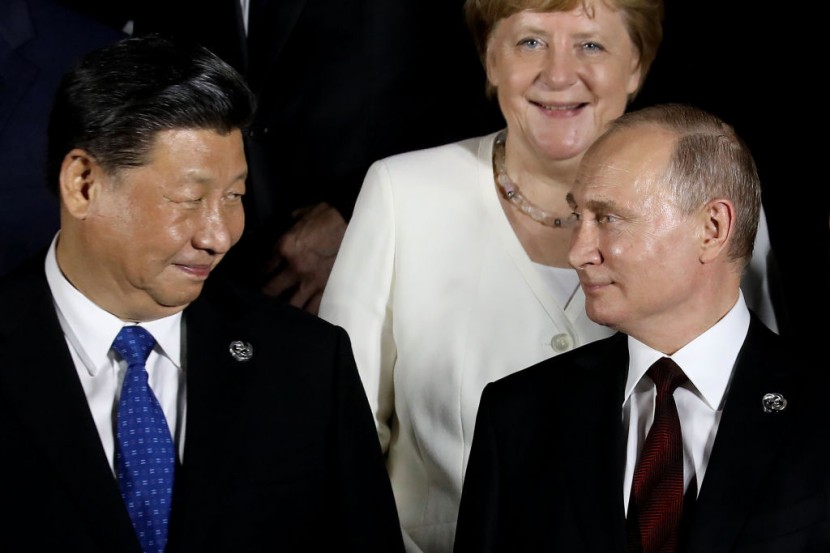
Experts said on Sunday that a major Russian oil company has begun to shift its settlements in China from the US dollar to the yuan, the latest step in an irreversible trend in which China and Russia are accelerating their de-dollarization push to improve the security and convenience of China-Russia trade against potential unilateral US sanctions.
Due to the rapid expansion of China-Russia trade, bulk commodity products will become the major business field in which local currencies - China's yuan and Russia's ruble - would be utilized in mutual trade settlement, according to analysts. Gazprom Neft, the oil subsidiary of Russian gas giant Gazprom, would move from using US dollars to using yuan and rubles to pay for refueling flights to and from China.
Moscow, Beijing push their currencies to dominate in the global financial system
Following a long period of negotiations, Gazprom Neft, which operates in 34 Chinese airports, and China's national jet fuel operator agreed. On Sunday, Song Kui, president of the Contemporary China-Russia Regional Economy Research Institute, told the Global Times that this move will elicit a strong response from China and that the two major world powers are expected to accelerate their pace in enhancing local currency settlements in mutual trade, moving away from the long-standing global financial system dominance.
Moscow has been pushing for the ruble to play a larger role in the global financial system, while Beijing is supporting the yuan's internationalization. Some US legislators have vowed to extend the US' assault on China to the financial arena, saying that Beijing might be shut off from the US dollar payment system, amid rising tensions between the two countries.
Per RT, the Russian-Chinese aviation fuel business, on the other hand, is making payments in national currencies for the first time. Test settlements in yuan and rubles revealed an extra-economic consequence, according to Dyukov.
He also stated that his business and the Chinese operator intend to double overall aircraft fueling volumes in both Russia and China to 250,000 tons by 2025. In the first half of 2021, the total volume of Gazprom Neft aircraft fueling stations in China grew to 56.5 thousand tons, a 12 percent raise over the same time last year and a 29 percent increase over 2019.
Moscow and Beijing have been pushing for their currencies to play a larger role in the global financial system, and have taken several moves in recent years to reduce their US dollar holdings.
China, Russia's common ambitions
Russia and China share more than communism and a disdain for the current global order based on rules. They share a history that dates back to 1715 when Russia established the first embassy in China.
A Russian Orthodox mission in Beijing cleared the door for greater cooperation between the two countries. For over a century, the mission became a de facto embassy, the only one in China.
The preaching expedition paved the way for Russia's takeover of China's furthest regions, including Manchuria and Mongolia. Russia had the upper hand as an imperial state since China had weakened significantly by the 1860s. During this time, China also turned to Russia for assistance in fending off challenges from other imperial countries seeking access to the former's profitable trading ports.
In exchange, Russia got its pound of flesh by acquiring 350,000 square kilometers of Chinese land. This included Vladivostok, a strategically positioned Pacific port city that serves as the Sea of Japan's entrance point.
Modern-day China aims to regain historical land from its neighbors to avenge the agony of its "century of humiliation." This ambition, however, is inapplicable to Russia, especially if it is pursued using its pattern of intimidation and aggression. Because Moscow's significance in Beijing's plan was distinct and far more essential than a single piece of land, this was the case, as per The Print via MSN.
Related Article: China, Russia Agree to Strengthen Coordination to Prevent Security Risks; Xi Jinping Reiterates Respect for Afghanistan Sovereignty








